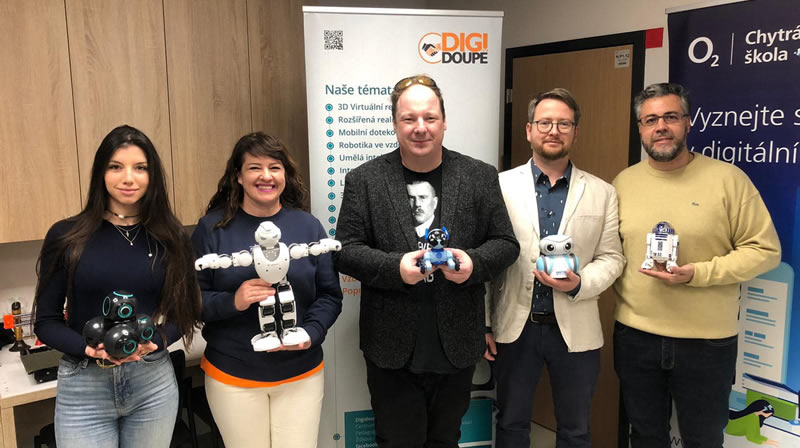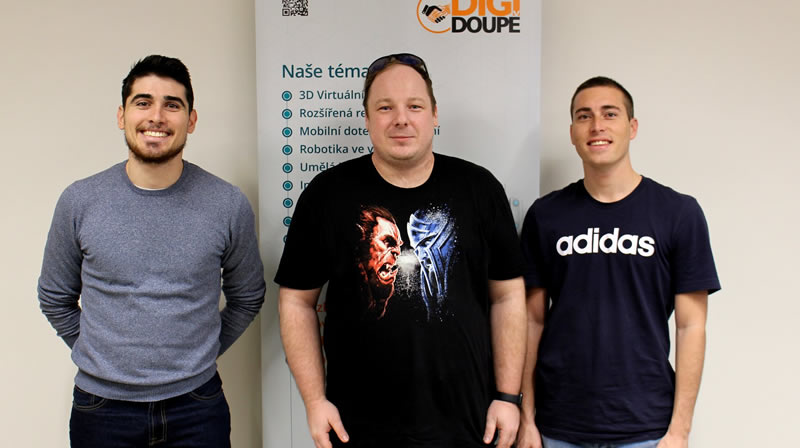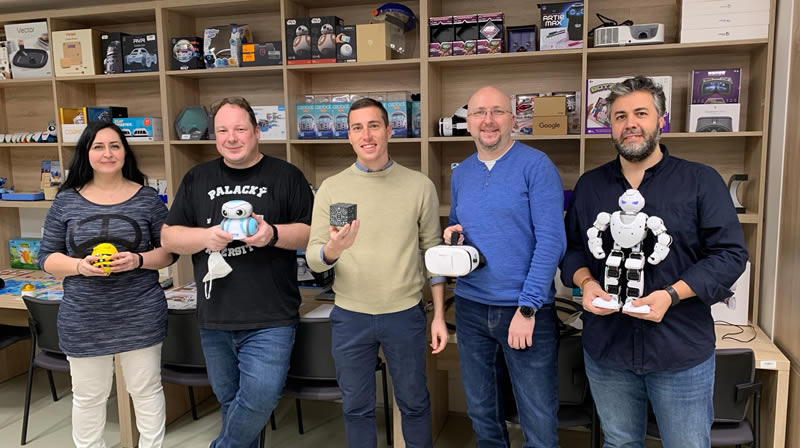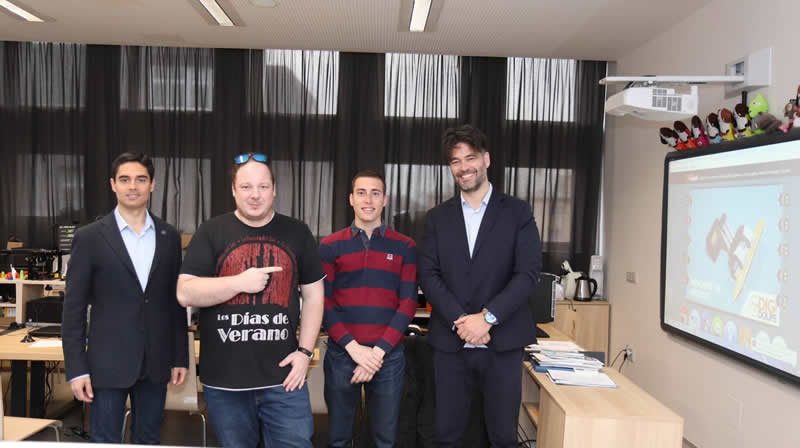
The Centre for the Prevention of Risky Virtual Communication of the Faculty of Education of Palacký University in Olomouc (CPRVC) is a certified university workplace dealing with risky forms of online communication of children and adults and effective use. It focuses on cyberbullying, cyberstalking, hoax and spamming, sexting, social engineering in the online community, risks of sharing personal data on social networks and other risky communication phenomena. Research conducted at the CPRVC is both basic and applied (including contract research). It focuses on risky communication between children and sexual abusers, the risks of sharing personal data across communication platforms, specific forms of cyber-attacks through webcams (webcam trolling), how to detect fake profiles, identify fraudulent e-shops and commercial offers, identify aggressors, support victims, etc.
In recent years, he has also been working intensively on the issue of strengthening media literacy - through education. In this area, it cooperates, for example, with CEDMO - Central European Digital Media Observatory. New research topics include, for example, the risks and opportunities associated with artificial intelligence.
In addition to research, the Centre also runs a national project on prevention and education in relation to risky behaviour on the Internet called E-Safety (www.e-bezpeci.cz), an online counselling service for victims of Internet attacks (www.napisnam.cz) linked to the national Safety Line, the Police of the Czech Republic, the Authority for Social and Legal Protection of Children and other professional institutions.

Centre for the Prevention of risky virtual communication (the Centre) Pedagogical Faculty of Palacký University in Olomouc was founded as a logical successor to the project Prevention of dangerous communication practices related to electronic communication for teachers and non-teachers (called E-Bezpečí), which was implemented in 2008-2009 thanks to the GACR grant. Thanks to this project basic functional structure focused on the prevention of socio-pathological phenomena in online virtual environments was created.
In 2009, the initial project was followed by other sub-regional projects such as Safe Internet (City of Lipník nad Bečvou, Department of Social Services) project Patron of Safety Net (Olomouc region), the E-Bezpečí project for Olomouc, etc., which were focused on prevention of cyber crime with emphasis on pupils and adults (parents, teachers, police). The project was also supported by the Statutory City of Olomouc (see grants).
Specialized departments of key ministries - trade unions of crime prevention of Ministry of Interior and the Ministry of Education, Youth and Sports noticed activities and knowhow of the project. A close cooperation with the two instituions have been established - with the Ministry of the Interior a project of training police officers PIS throughout the Czech Republic has been launched, in cooperation with the Ministry of Education a project of training students and teachers has been launched. The Centre has also begun to participate in dozens of other local and national projects. Vodafone and Czech Radio Olomouc has become strong partners of the Centre.
Since 2010 the Centre have begun to implement a series of regional educational, intervention and research projects aimed at supporting education in the region of Ostrava and Olomouc. These regions have also included the project activities in its urban crime prevention programs.
In 2011, thanks to grants from the European social funds the Centre extended the activities of students education - future teachers. The result was establishing of the E-Synergy project, which centralizes the activities associated with the development of knowledge and skills just for this target group.
In 2012, the Centre connected the activities of the E-Bezpečí project with activities of Seznam se bezpečně! project and agreed on mutual cooperation. Partner network has been extended by one of the most successful Czech companies operating in the field of online technologies - Seznam.cz. The Centre has also begun to cooperate with the Czech subsidiary of Google - Google Czech Republic.
In 2013-2015 Centre has cooperated with various commercial and non-commercial institutions - Czech Police, Ministry of Interior CZ, Ministry of Education, Vodafone Czech Republic, O2 Czech Republic, IBM, Linka bezpečí, Google, Seznam.cz etc. Since 2016 Centre cooperates with O2 Czech Republic, Avast, Microsoft and other companies.
Currently the Centre realizes complex of virtual communication activities in the field of education, prevention, intervention and research, affecting the whole territory of the Czech Republic.

The Centre for the Prevention of Risky Virtual Communication has received numerous awards for its activities, both nationally and internationally.
Bronze Medal of the Deputy President of the Police 2023
In recent years, our center began to focus also on positive forms of use of modern information and communication technology in education for children and adults. Modern communication technologies allow us especially effective way to motivate students and stimulate their interest in various disciplines of science. At the Faculty of Education of Palacký University in Olomouc, we have created a separate laboratory of of modern information and communication technologies called Digidoupě (Digiden), which is available to students, teachers and others interested in education with the support of digital technologies. You can visit our YouTube Channel.
Laboratory Digidoupě has several objectives:
A. To improve the digital literacy among future teachers – students
(through teaching, own projects, innovation, research, etc.).
B. To improve the digital literacy among teachers
who, for example, seek to increase their qualification or are simply interested in this area.
C. To improve the digital literacy among undergraduate students
who want to set up their business in the future based on digital technology (start-up, technology-oriented company, etc.).
D. To increase children's interest in the meaningful use of technology
(for example, as part of thematic projects, content development, prototyping, etc.).
E. To design tools that can be used in teaching and in students' home preparation
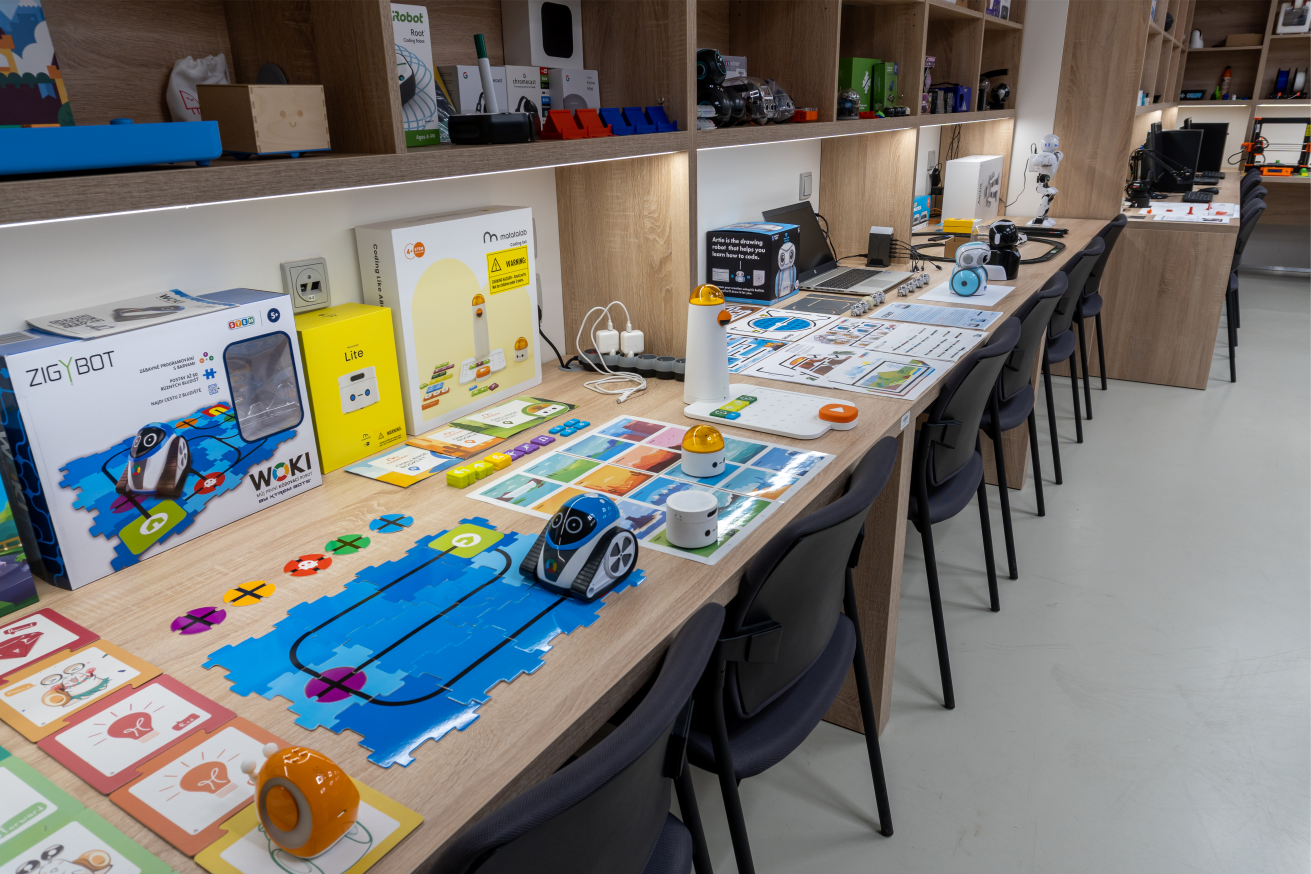
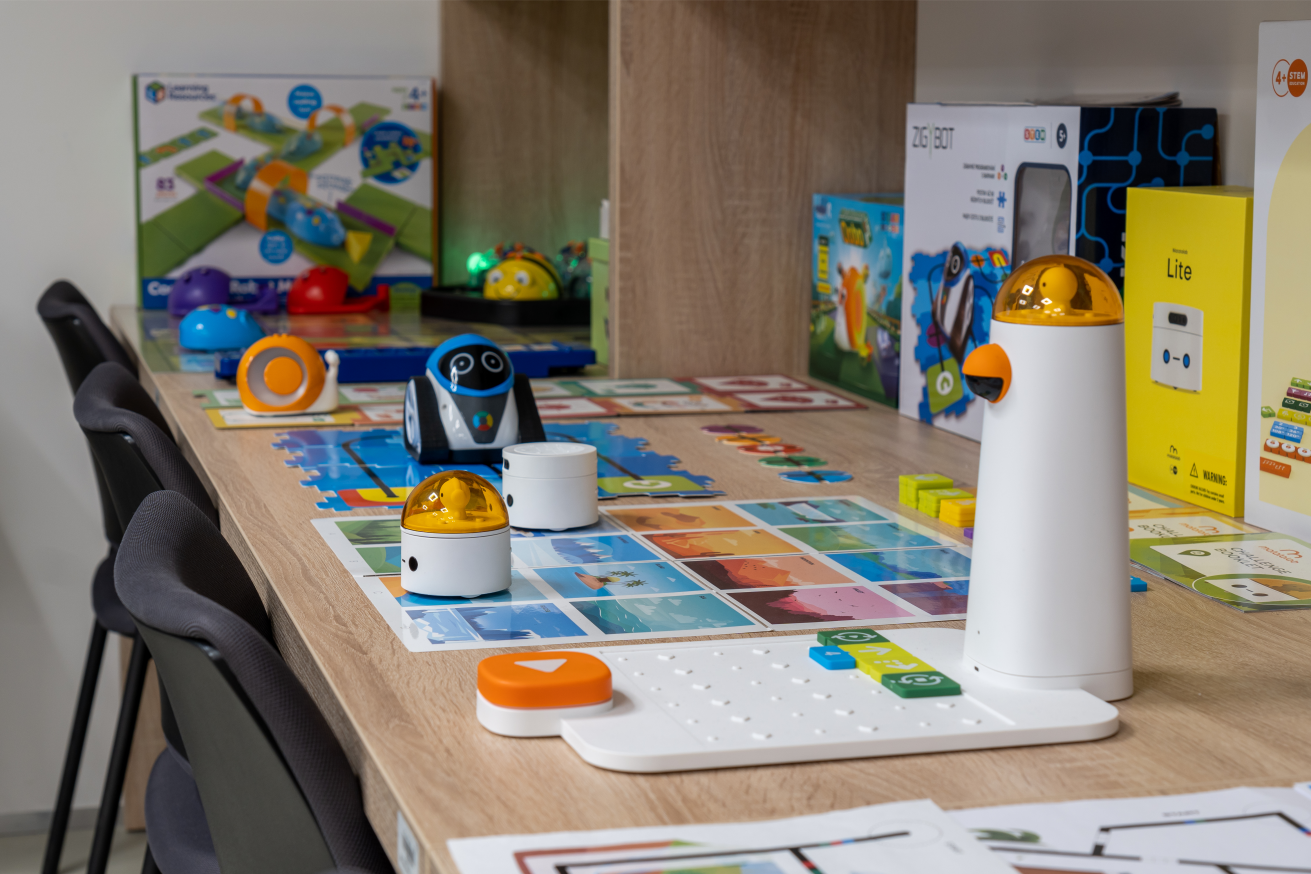
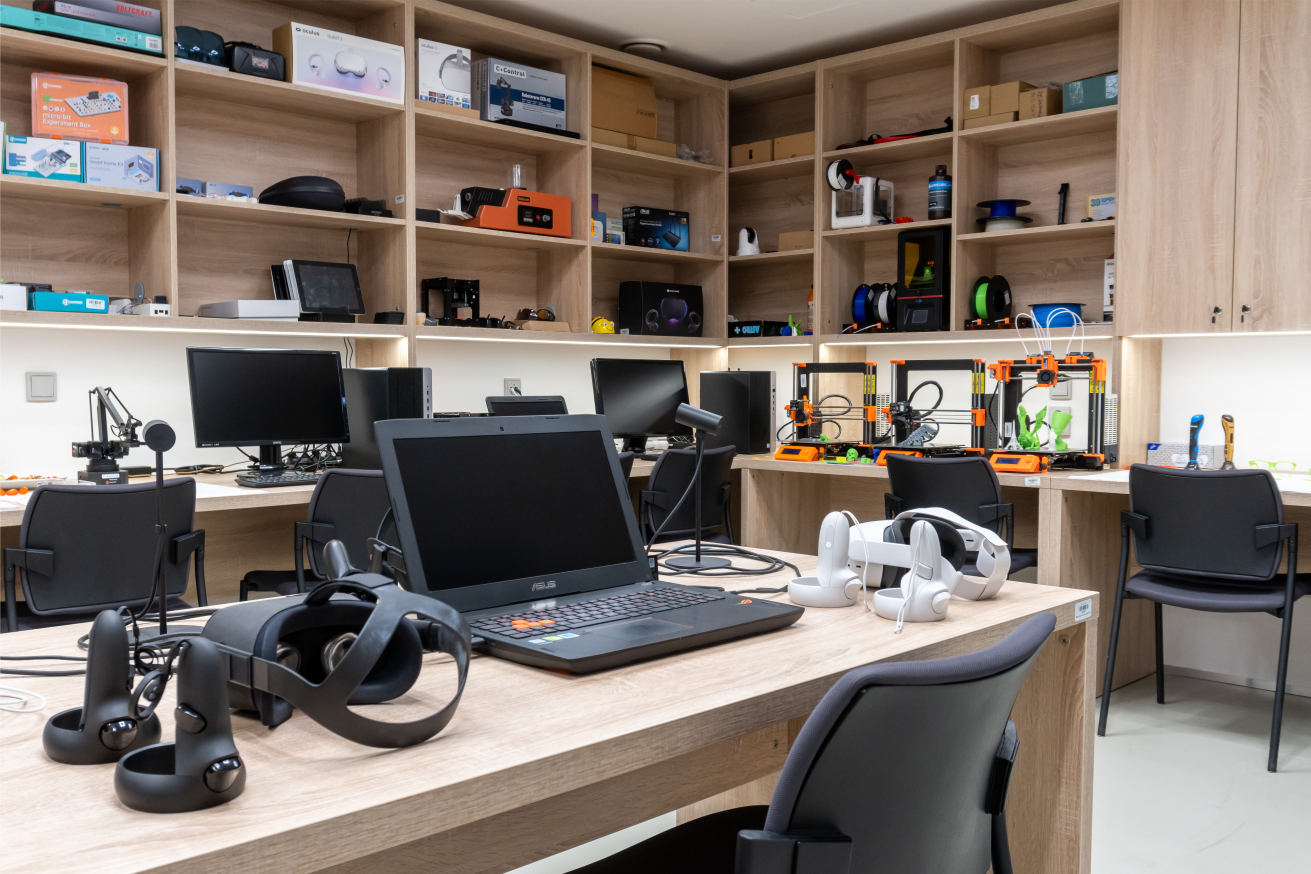

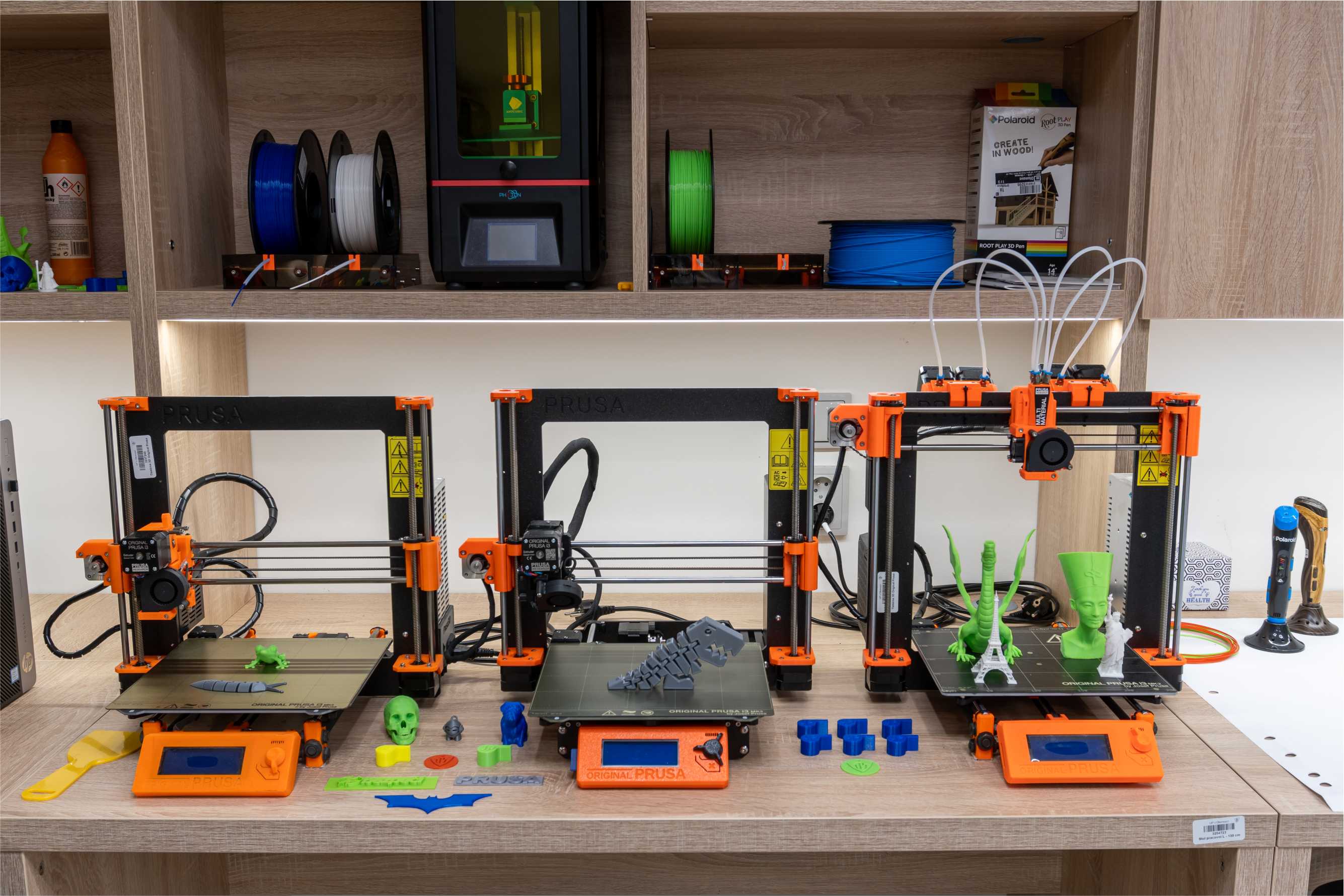
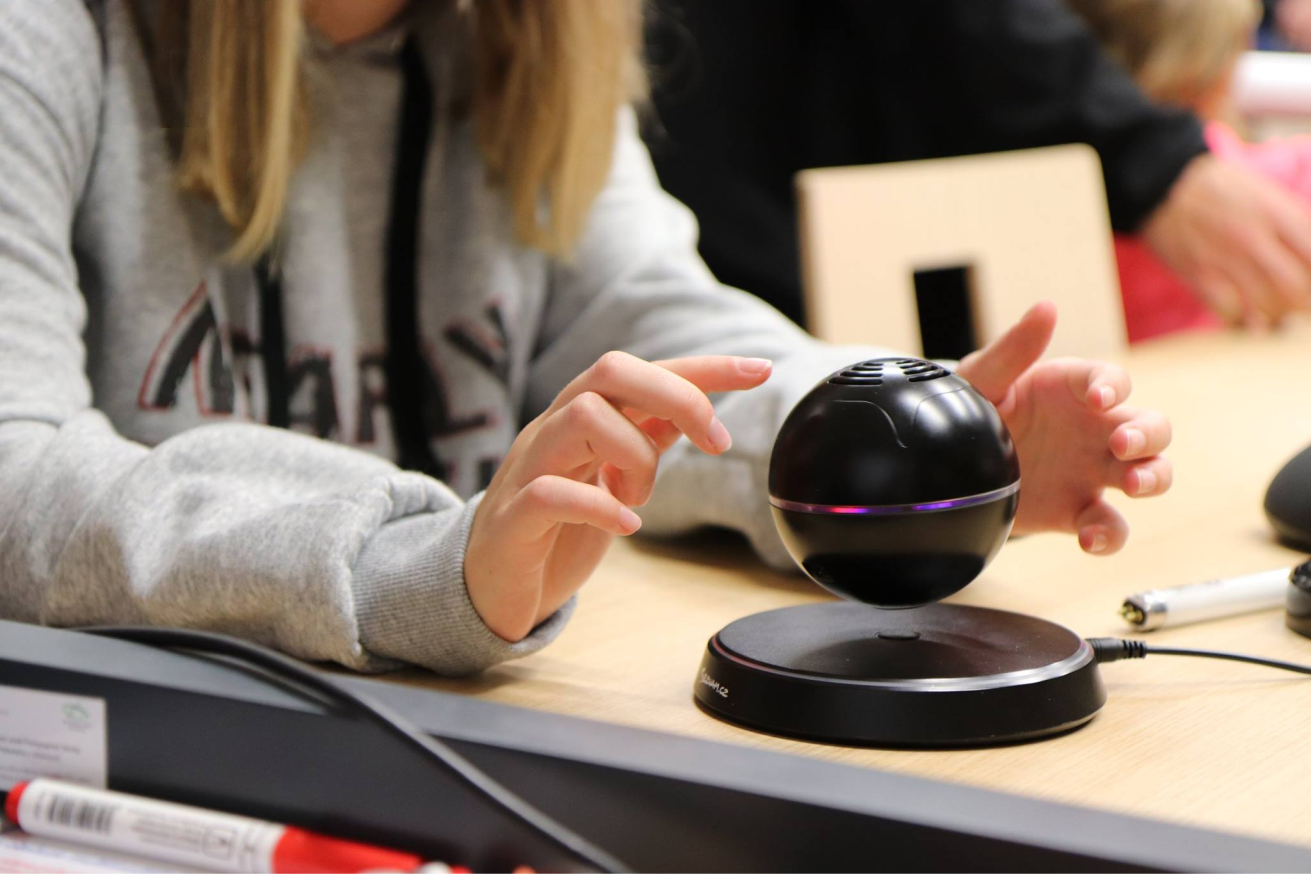
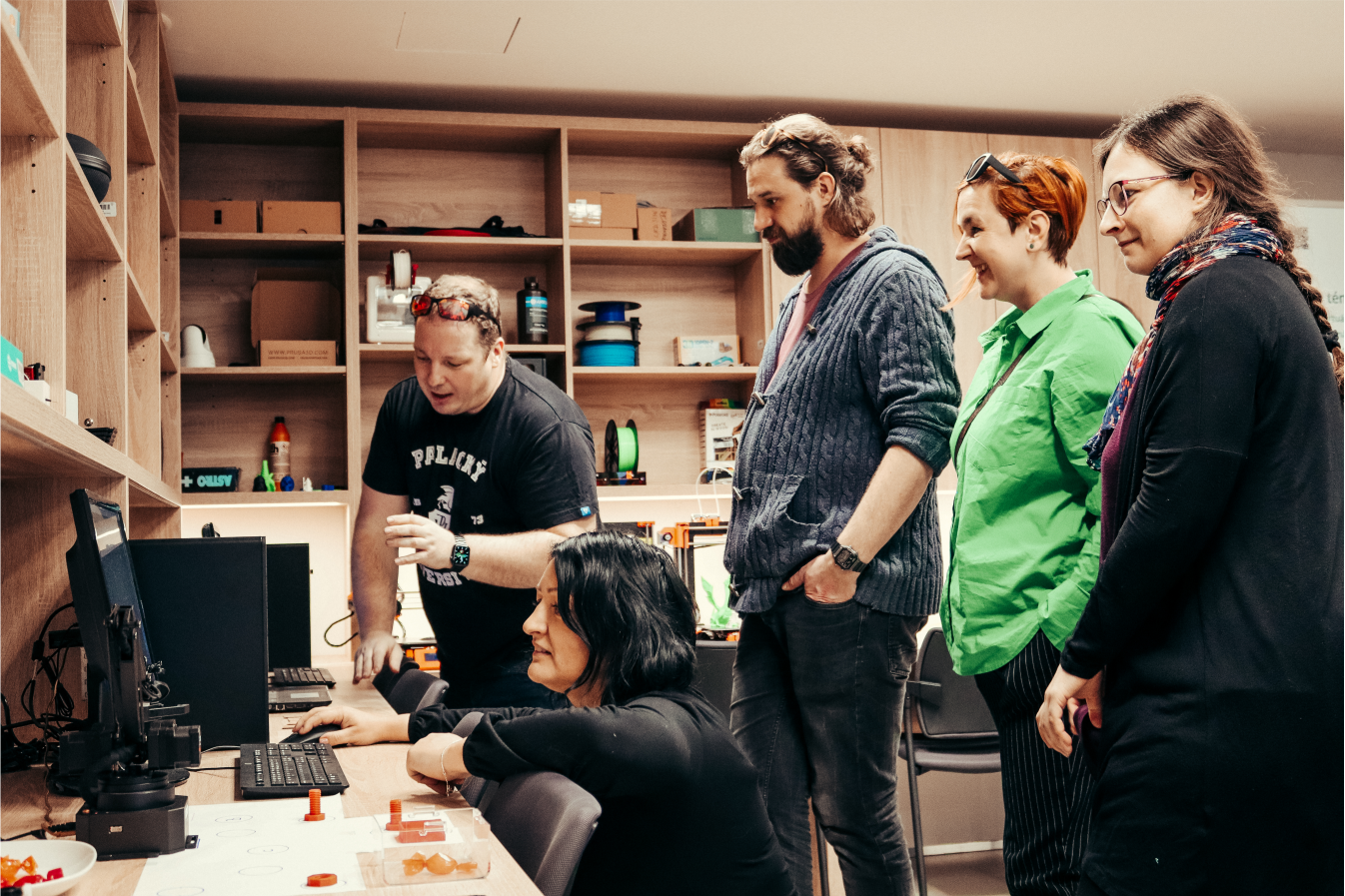
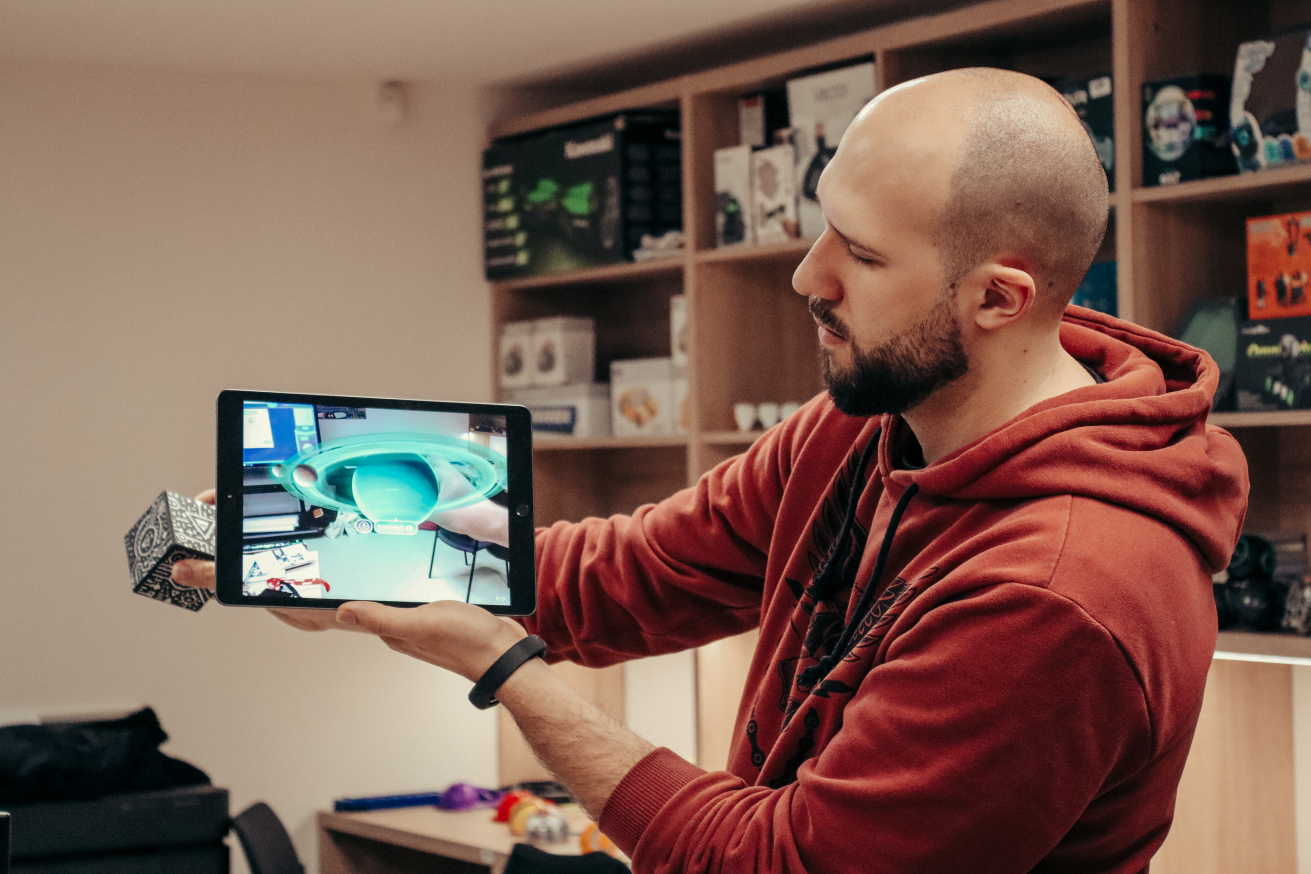
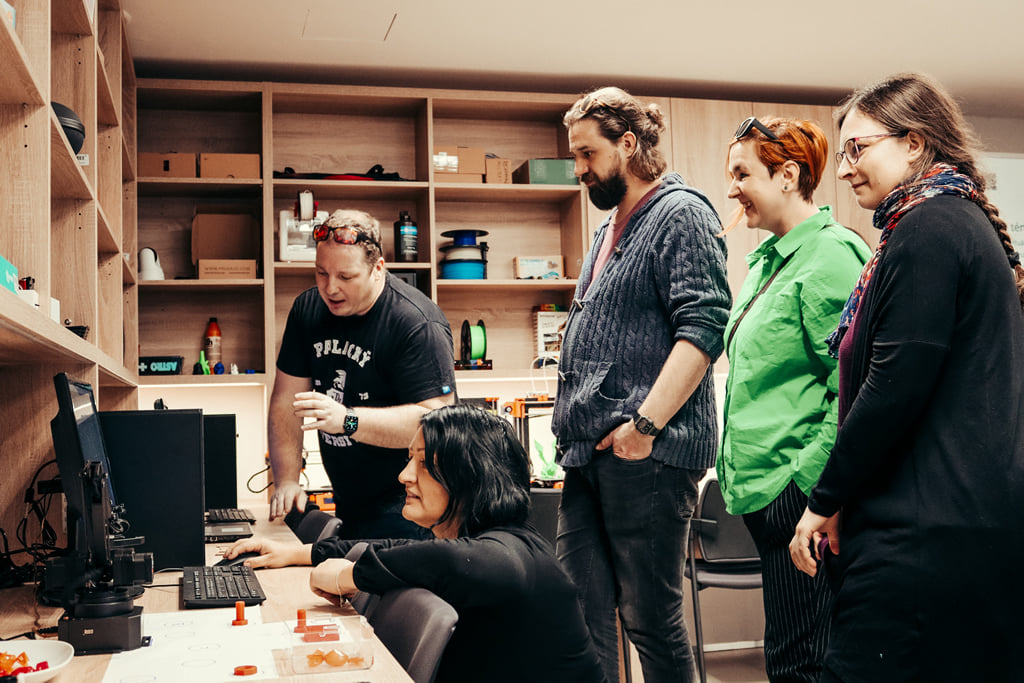

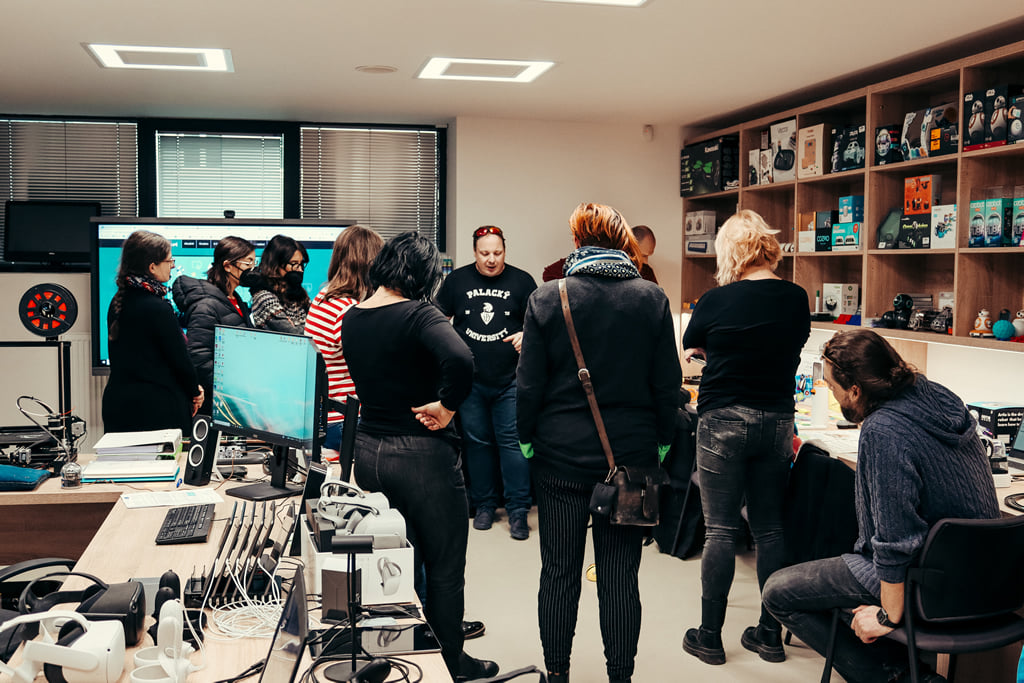
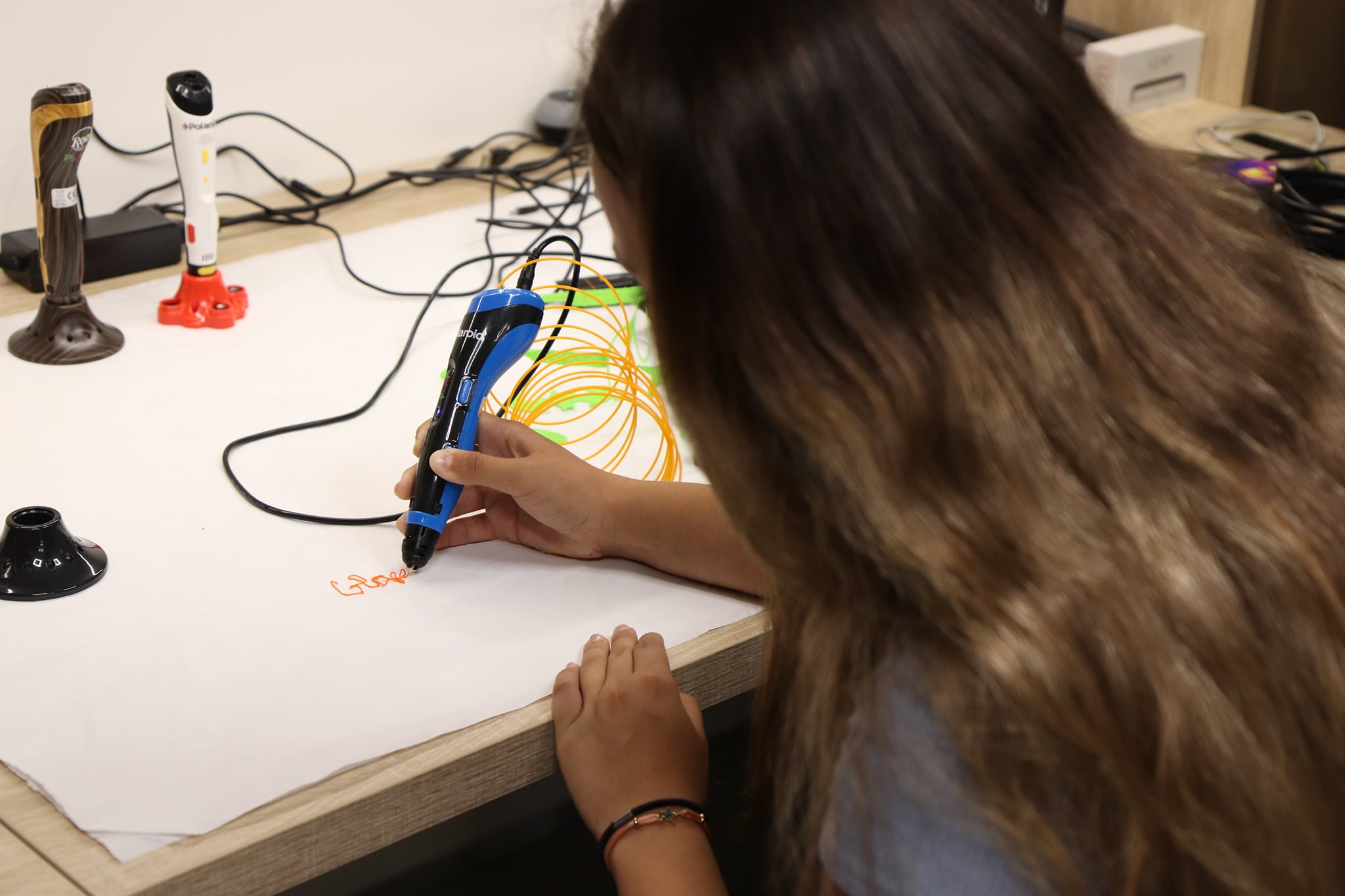

| Title of research | Year | Target group, sample | Reports |
| Czech Students and Artificial Intelligence | 2024 | students, n=28058 | [cz] |
| Czech Schools and Artificial Intelligence | 2023 | teachers, n=2175 | [cz] |
| Sharenting with Czech parents | 2022 | parents, n=2481 | [cz] |
| Children and the cult of beauty in the online world | 2022 | children 10-17, n=9441 | [cz] [eng] |
| Online world of child's homes | 2022 | child clients and workers, n=197 (child clients), n=166 (workers) | [cz] [eng] |
| Czech teachers in the world of media | 2021 | teachers, age 21-78, n=2155 | [cz] [eng] |
| Risk phenomena in the online environment of children of the Czech-Polish borderland | 2020 | [cz] | |
| Czech Children in cyberspace | 2019 | children, age 7-17, n=27177 | [cz] [eng] |
| Parents and parenting in the digital era | 2018 | parents, n=1093 |
[cz] |
| Elders on the internet | 2017 | adults 35+, n=1072 |
[cz] |
| Sexting and Risky Acquaintances Made by Czech Children in Cyberspace | 2017 | children, age 7-17, n=4878 |
[eng] |
| Risky behavior of Minecraft players | 2016 | players of Minecraft (children, adults), n=2331 |
[eng] |
| Cyberbullying of teachers | 2016 | teachers of primary and secondary schools, n=5136 |
[cz] |
| Czech Children and Facebook | 2015 | children, age 9-17, n=1248 |
[cz] |
| Specifics of Children Communication and Online Aggressors within the Online Assaults on Children | 2015 | children x attackers, 267 records | |
| Danger of internet communication 5 (Czech Children) | 2014 | children, age 11-1, n=28232 |
|
| Risky behaviour of Slovak children | 2014 | children, age 11-17, n=1488 |
|
| Danger of internet communication 4 (Czech Children) | 2013 | children, age 11-17 years, n=21372 |
|
| Risky Behaviour of Students of Faculty of Education of Palacký University Olomouc within the Internet Environment | 2013 | students, age 20-25 years, n=386 |
|
| Research of formal and semantic analysis of computer passwords of young users | 2013 | people, age 18-67, n=3743 |
|
| Danger of internet communication 3 (Czech Children) | 2012 | children, age 11-17, n=10830 |
|
| Danger of electronical communication 2 | 2011 | children, age 11-17, n=12533 |
|
| Danger of electronical communication 1 | 2010 | children, age 11-17, n=1925 |
The results of the research are published both in professional monographs and professional journals indexed in the Scopus and Web of Science databases. Many of our results are highly ranked and placed in the 1st quartile of WoS. In addition to scientific articles, we also publish popular texts for the general public.

The key activity of the PRVoK Centre is the implementation of educational activities for various target groups, especially for primary and secondary school pupils and university students, parents, teachers, police officers, psychologists and OSPOD workers, but also for the elderly. Educational activities are focused on the dangers associated with the use of the Internet and mobile phones, in particular the risks of social networks, cyberbullying, cyberbullying, sexting and the protection of personal data on the Internet, but also, for example, on the issue of media literacy (misinformation, misinformation, hoaxes), online fraud or the risks associated with artificial intelligence. Educational activities take place all over the Czech Republic.
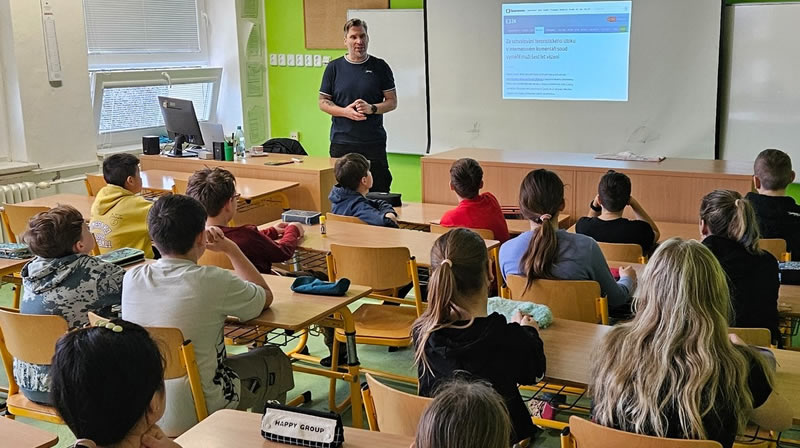
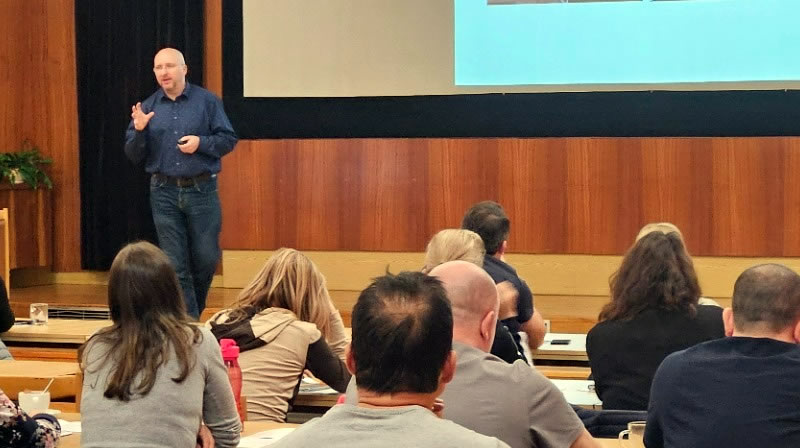
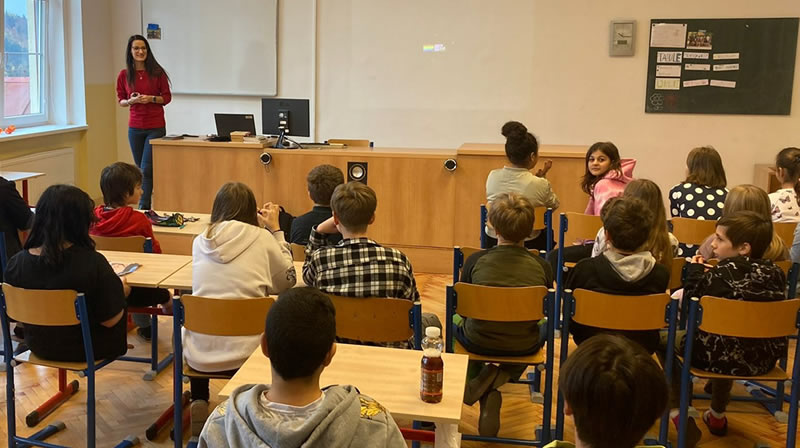
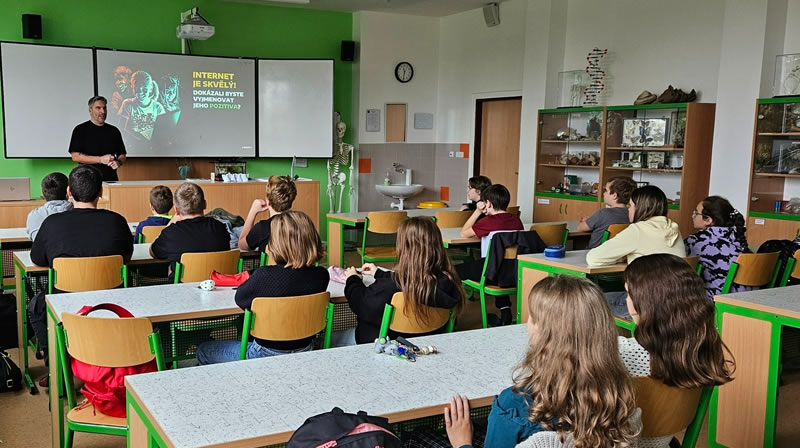
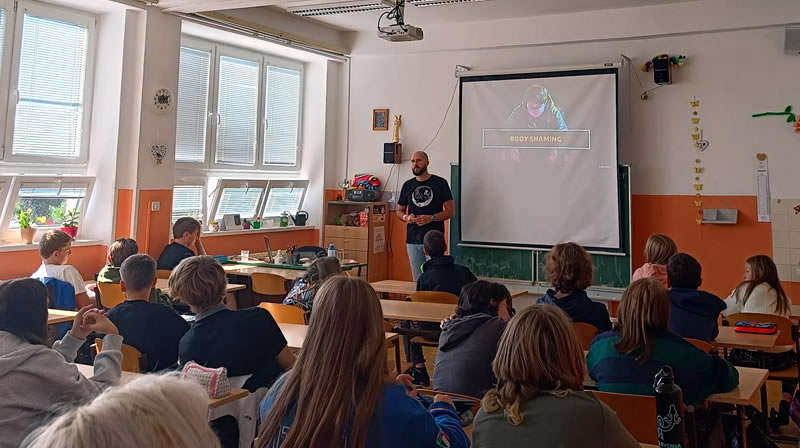
So far, the Centre has carried out educational events for more than 170,000 primary school pupils, more than 2,000 police officers, more than 15,000 student teachers, 10,000 primary and secondary school teachers and more than 5,000 university teachers. We have also trained thousands of parents, psychologists, crime managers, etc.

The Center for the Prevention of Risk Virtual Communication of the Pedagogical Faculty of the Palacký University for the Ministry of Education, Youth and Sports and the National Institute of Education prepared an updated version of the Legislative Document of the Methodical Recommendation on the Primary Prevention of Risk Behavior (in area of cyberbullying and risky sexual behaviour). The two documents are now complemented by a whole range of new information, for example on how to deal with risk situations on the school side, on the part of the victim of aggression and also on her parents. The sub-section also deals with the risk and protective factors associated with cyberbullying, its origin and development. We have supplemented the legislative framework (in line with the revised School Act), expanded the network of cooperating institutions, and also focused on the possibilities of solving cyberbullying out of school (in cooperation with other institutions).
The innovated material is available on the Ministry of Education website (Czech only).

The Center offers cooperation to foreign research organizations - universities, research laboratories, as well as private entities, especially in the areas of research, development and innovation. Our center has experience in implementing a large number of national and international research projects.
It is also possible to carry out an internship in our workplace (eg in PhD studies or other types of research internships). We have experience from the Erasmus + program, etc. We are actively engaged in our trainees, providing them with the opportunity to attend lectures, seminars and workshops in the field and at our workplace.
Language for communication: English, Czech, Slovak.
Certificates for visitors: Internship certificate, Erasmus+ certificates, Certificate of Implementation of the results (according to the research topic).
Details of the possibilities will be provided by prof. Kamil Kopecký, PhD (kamil.kopecky@upol.cz), head of the center.

